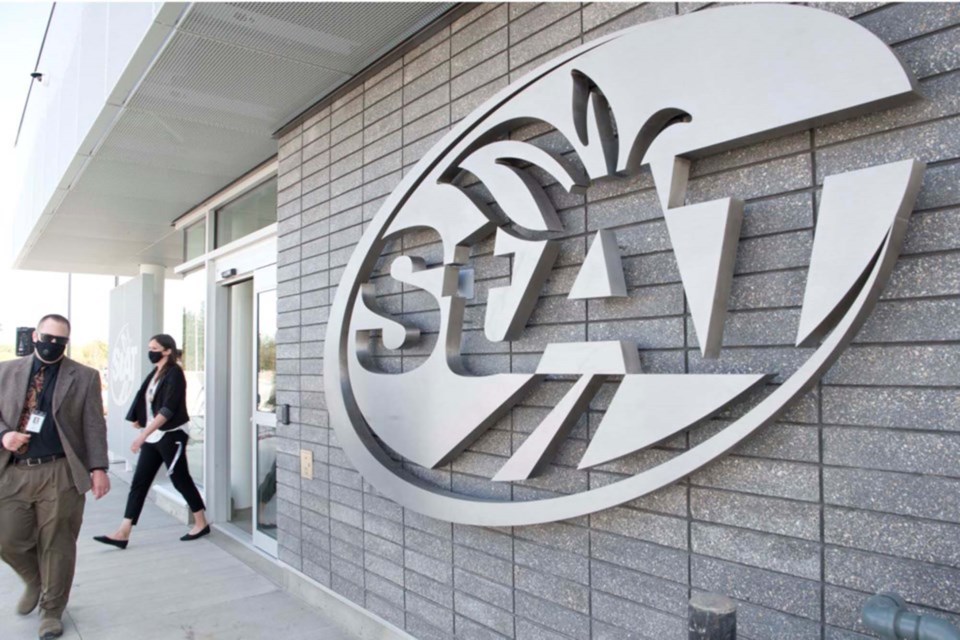Edmonton city council has voted to reprioritize an LRT extension that would run up to St. Albert, despite a recommendation for administration to bump it down the list.
Earlier in February, Edmonton city administration released a mass transit report that deprioritized the LRT planned to run through Edmonton’s Castle Downs neighbourhood up to St. Albert. Instead, the plan favoured an extension in Edmonton’s south. Administration cited anticipated growth in the lower portion of the city, including the addition of a new hospital, as the reason for the change.
On. Feb. 22, Edmonton city council voted to reprioritize the LRT to Castledowns and St. Albert, giving it equal priority with the extension in the south. The decision came after residents in Edmonton's north criticized the project's continuous delays.
Despite the news, there is currently no solid timeline for the north LRT — two Edmonton LRT expansion projects are currently under construction, with a third extension south to Heritage Valley already stacked with $1 billion in funding as the city searches for a team to build it out. In 2019, Edmonton projected a $2-billion cost for the north LRT.
St. Albert Coun. Wes Brodhead, who serves as chair of the Edmonton Metropolitan Transit Services Commission, said he appreciates the north LRT extension’s reprioritization.
Though the north extension will benefit those in St. Albert, Brodhead noted it’s important that Edmonton serves their “own civic needs.”
“By and large, that’s their call,” Brodhead said. “It’s gratifying that they chose to stabilize the north as a priority … I’m hoping to see that in my lifetime.”
The commission is currently working towards a regional delivery model for public transit. While Brodhead said the LRT system is not currently envisioned as part of regional service offerings, plans could change as the decades unfold.
When asked about the regional impact the north LRT could bring, Brodhead said a connection to St. Albert is important, but noted he doesn’t want to discount “the need to go south as well” and its subsequent regional benefits. He added that federal funding will be integral to prioritizing both projects.
St. Albert Mayor Cathy Heron, who voiced disappointment over the north LRT’s initial deprioritization, said the news is “exciting.”
“It demonstrates that regional collaboration does have an influence in the decision-making process,” Heron said.
St. Albert’s own LRT plans
St. Albert’s Transportation Master Plan currently includes a long-term plan for its own seven-kilometre LRT that would run from Nakî Transit Centre — the planned terminus of Edmonton’s north LRT extension — and up St. Albert Trail. Plans for the St. Albert Trail LRT from 2015 pinpoint the cost for the project at $1.1 billion.
Dean Schick, St. Albert’s transportation manager, said in an email to The Gazette that St. Albert’s own priorities for the LRT are focused on a staged approach, which will first look at protecting St. Albert Trail as a priority transit corridor.
According to the Transportation Master Plan, developing regional infrastructure such as Ray Gibbon Drive and 127th Street “will provide opportunities to change the scale of St. Albert Trail from a wide, car-friendly arterial, to a community road that supports comfortable facilities for all transportation modes.”
Schick said the integration of the LRT will happen in “transitional phases,” beginning with a park and ride in the north that would allow Bus Rapid Transit — bus systems designed to have better reliability than a conventional bus system with aspects that include dedicated roadways — to connect to the Nakî park and ride.
“It is anticipated that as the region grows and the city of St. Albert develops in the north, increased demands for improved and efficient public transit will be triggers for delivering LRT,” Schick said in the email.
Heron said Edmonton city council’s decision won’t have an impact on St. Albert’s transit plans for the time being, but noted advocacy around transit will always be important going forward “especially at the federal level.”




